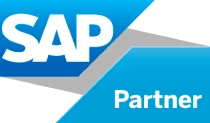Hiring the right software development partner is one of the most important decisions you will make for your digital projects. Whether you are starting fresh or scaling an existing platform, the impact reaches far beyond just code delivery. When it comes to hiring a software development partner, your decision influences your time to market, product quality, and long-term maintainability.
A dependable partner offers more than just development skills. They bring clear processes, accountability, and alignment with your strategic direction. While many vendors promise results, not all are equipped to manage real-world complexities.
Choosing the right firm early can prevent delays, budget overruns, and misaligned expectations. That is why asking the right questions upfront matters.
This is especially true in the context of digital transformation, where timelines, technology stacks, and expectations can shift rapidly. You need a partner who can adapt, scale, and collaborate with you through change.
Specific questions lead to specific answers. They help you evaluate compatibility, communication style, and project mindset. This process builds a stronger, more collaborative foundation from the start.
The following eight questions will help you evaluate potential development partners and make a choice that aligns with your long-term goals.
1. What is Your Experience with Projects Like Mine?
Start by understanding whether the partner has delivered solutions in your industry or with similar complexity. A good track record gives you confidence they can handle technical requirements, industry regulations, and business expectations.
- Ask for specific case studies or product demos that show relevant experience. Look for measurable outcomes, not just technical jargon.
- Inquire about the scale of past projects, including timelines, team size, and post-launch support. These details can help you gauge operational maturity.
- References also matter. Speaking with past clients gives you honest feedback on the partnership dynamics, responsiveness, and problem-solving ability.
- Experience doesn’t guarantee everything, but it reduces risk. A partner who has “been there, done that” is more likely to anticipate roadblocks before they turn into issues.
- Ultimately, you’re not just hiring a vendor to deliver code. You’re looking for a collaborative partner who understands your industry landscape, speaks your language, and can accelerate delivery with fewer surprises.
2. How Do You Structure Your Development Process?
The development process is more than just code deployment. It is how your vision takes shape through a structured workflow.
- A reliable partner should explain their development methodology clearly. Whether they use Agile, Scrum, Kanban, or a hybrid model, the key is consistency and clarity.
- Ask how they plan and run sprints. Do they involve you in sprint planning or reviews? Are you part of backlog grooming sessions?
- Look at how they prioritize tasks. Transparent sprint boards or project management tools can help you follow progress without hovering.
- Inquire about code reviews, version control practices, and how technical debt is managed during the build.
- A thoughtful process allows flexibility for iterations while keeping milestones intact.
You don’t want to micromanage, but you do need visibility. A partner with a transparent, structured approach helps you stay aligned without needing constant oversight. That’s how you maintain both control and peace of mind.

3. What Is Your Approach to Communication and Collaboration?
Communication is the backbone of every successful development partnership. It is not just about sending updates. It is about making sure everyone understands the goals, decisions, and progress in real time.
- Ask how frequently they communicate. Will there be weekly video calls, daily standups, or live updates through tools like Slack or Microsoft Teams?
- Check how they structure feedback loops. Do they review progress with you regularly or wait until delivery stages?
- Understand the tools they use. Platforms like Jira, Trello, or Asana can help track progress, assign tasks, and surface blockers early.
Clear communication helps:
- Avoid misunderstandings and scope creep
- Address delays or bugs promptly
- Ensure your team is informed and involved at each stage
Additionally, ask if you’ll have a dedicated point of contact or project manager. That makes it easier to escalate issues and maintain continuity.
A partner that values transparency and collaboration will actively involve you, not just inform you. That distinction makes a big difference in how confidently you can steer the project forward.
4. Who Will Actually Be Working on My Project?
- It’s common for firms to introduce their top talent during the sales process. However, the real project team might be entirely different.
- Always ask to meet the actual developers, designers, and project managers who will work on your product.
Understanding the real team’s background matters:
- Are they full-time employees or contractors?
- How long have they been with the company?
- Have they worked together on similar projects before?
Knowing this gives you insight into how smoothly they will collaborate and how committed they are to long-term outcomes. It also reduces the risk of onboarding issues later.
Also, clarify if your team will have direct access to the people doing the work, or if all communication is filtered through account managers. Direct lines build trust faster and make decision-making easier.
Transparency around team structure helps you avoid misaligned expectations and ensures that the skills pitched are the skills delivered.

5. How Do You Handle Change Requests and Scope Adjustments?
Change is inevitable in any development project. Market conditions shift, internal priorities evolve, and new insights can lead to smarter product decisions.
That is why it is important to ask how a development partner manages changes during a project. Look for clear processes around:
- How they document and evaluate change requests
- How they estimate the impact on budget and timeline
- Whether changes are communicated promptly and transparently
Some reliable signs of structured change management include:
- A formal change log or version history
- Updated documentation and sprint plans
- Client approval workflows for new scope additions
Scope changes are not a problem when handled correctly. The real issue is when they go untracked, leading to delays or overspending.
You want a partner who brings structure to flexibility. That balance lets you adjust direction when needed without losing momentum or clarity.
6. What Steps Do You Take for Quality Assurance?
Quality assurance (QA) is not just about finding bugs. It is about delivering a stable, reliable, and user-friendly product. You want a partner who prioritizes QA from the beginning, not just at the end.
Ask how they embed QA into the development workflow:
- Do they begin testing during development or wait until major milestones?
- What mix of manual and automated testing is used?
- How do they define and measure acceptance criteria?
Reliable QA partners use structured processes such as:
- Test-driven development or behavior-driven testing
- Integration of CI/CD pipelines with testing automation
- Detailed bug-tracking systems that log, prioritize, and resolve issues
Also, find out if they include user testing in their process. Feedback from real users can catch usability flaws that automated tools miss.
A thoughtful QA strategy reduces rework, improves launch quality, and saves time in the long run. It ensures that when your product goes live, it performs reliably and reflects the level of polish your brand expects.

7. How Do You Manage Security and Compliance?
Security is a foundational concern in any software project. It should be part of the architecture from day one, not patched in as an afterthought.
When evaluating a development partner, ask detailed questions such as:
- How do you handle data encryption both in transit and at rest?
- What access control policies are enforced internally and within the application?
- How is secure coding enforced during development?
Also, explore how they stay current with security standards. Do they follow OWASP guidelines? Are their developers trained in secure coding practices?
For industries dealing with sensitive data, compliance is equally critical. Make sure the team understands requirements like:
- GDPR for data privacy in the EU
- HIPAA for healthcare software in the US
- SOC 2 or ISO 27001 for general data handling and process standards
A strong partner will show proactive security planning, not just reactive fixes. They should perform regular audits, threat modeling, and penetration testing to minimize risk. Most importantly, they should treat your users’ data with the same seriousness you do.
8. What Happens After the Product Goes Live?
The launch of your product is not the end of the journey. In many ways, it is the beginning of an ongoing cycle of improvement and support.
You should ask your software development partner what kind of post-launch support they offer:
- Do they provide routine maintenance and performance monitoring?
- How do they handle bug fixes or emergency issues?
- Is there a clear plan for applying security updates and feature enhancements?
Some firms offer structured support plans that include:
- Monthly or quarterly check-ins
- System audits and performance reviews
- Ongoing optimization based on real user feedback
The best partners will not just deliver the code and walk away. They will stay with you to ensure your software continues to perform, scale, and meet user needs. A long-term support strategy brings stability to your product and peace of mind to your team.

How Webvillee Helps You Build with Confidence
At Webvillee, we believe great software is built on clarity, collaboration, and care.
We bring cross-industry experience, transparent delivery processes, and dedicated teams to every engagement. From discovery to support, your goals stay at the center of our work.
Whether you’re building a product from scratch or modernizing an existing one, Webvillee helps you make confident, strategic decisions every step of the way. If you’re ready to explore how we can support your project, feel free to get in touch and start the conversation today.

